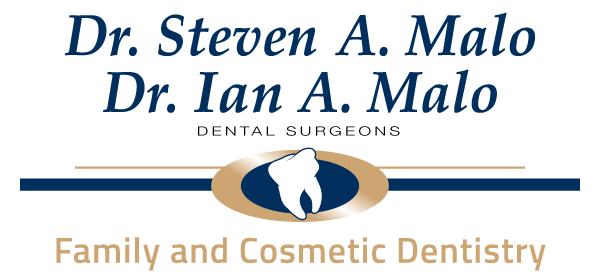Periodontal (Gum) Disease & Treatment
Gum Disease is the number one cause of tooth loss in adults: it attacks the gums and bone that support the teeth. Beginning with slight swelling and redness, and sometimes sensitivity of the gums, Gingivitis, the early stage of periodontal disease, can go undetected if a patient avoids regular dental checkups. However, as it progresses, periodontal disease can become quite serious causing gum recession, tooth loss, and bone loss. Research has also linked periodontal disease to other health risks such as stroke, heart attack, diabetes complications, low birth-weights and premature births.
Malo Dentistry will screen for periodontal disease at your regular check-up. If we find that you are at risk, we will counsel you on preventive measures. Should we diagnose gingivitis or periodontitis, we will recommend periodontal therapy which can generally be performed in our clinic. Advanced periodontitis may require a specialist, in which case we refer patients to a trusted periodontist for treatment.
Good oral hygiene, a balanced diet, and regular visits to the dentist can reduce your risk of periodontal disease.
Signs and symptoms of periodontal disease:
- Red and puffy gums
- Bleeding gums
- Persistent bad breath
- Loose teeth
- Receding gums
- Tenderness or Discomfort in gums or teeth
- New spacing between teeth
- Pus around the teeth and gums
